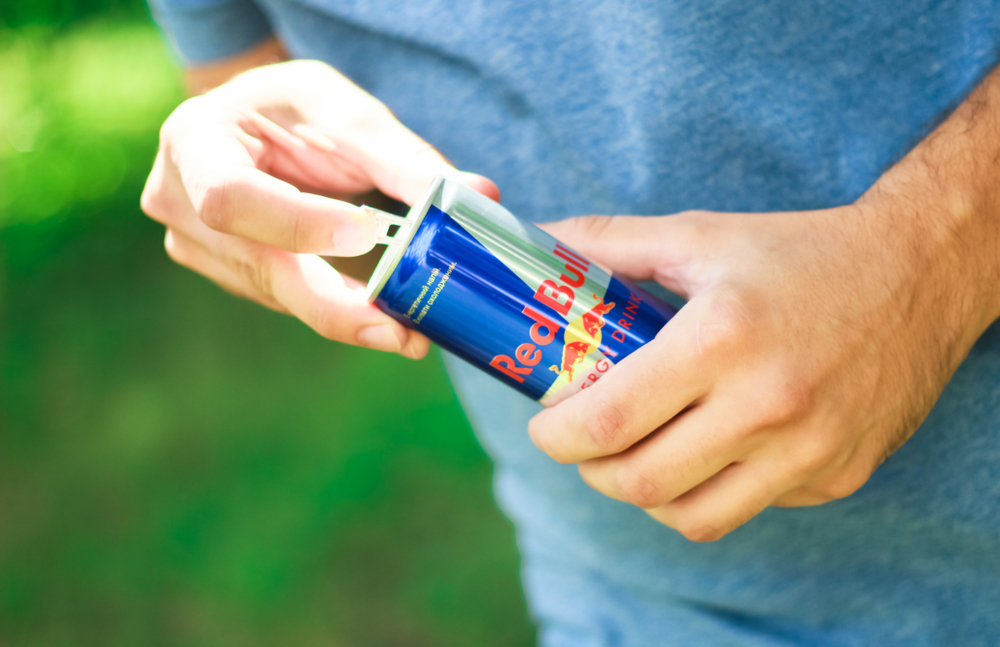 For a good chunk of us, reaching for an energy drink is like flicking a switch. Suddenly, that heavy feeling of fatigue lifts, our focus sharpens, and the day ahead seems a whole lot more manageable. It's the promise of a quick fix, a boost to get us through demanding tasks, long workdays, or that dreaded afternoon slump.
For a good chunk of us, reaching for an energy drink is like flicking a switch. Suddenly, that heavy feeling of fatigue lifts, our focus sharpens, and the day ahead seems a whole lot more manageable. It's the promise of a quick fix, a boost to get us through demanding tasks, long workdays, or that dreaded afternoon slump.
However, this invigorating burst is often fleeting. As the potent combination of caffeine and sugar begins to wear off, so too does our energy and mood. What follows is frequently a less-than-pleasant crash, leaving us feeling irritable, tense, and with a gnawing craving for another can to recapture that initial feeling. This continuous cycle of highs and lows can make maintaining emotional equilibrium a genuine challenge over time.
Health professionals are increasingly noting that individuals who rely heavily on these beverages often find themselves grappling with significant mood swings and a diminished capacity to regulate their stress levels. The very components that marketing departments trumpet as beneficial – namely caffeine, sugar, and various herbal stimulants – can, in fact, overstimulate our nervous system. This overstimulation can exacerbate feelings of anxiety or make it considerably harder to remain calm and composed when faced with pressure.
The "Extra" Perks: A Closer Look
Energy drink advertising often shines a spotlight on ingredients like ginseng, guarana, or green tea extract, frequently promoting them as potent brain enhancers. These are positioned as the secret weapons that elevate cognitive function and boost mental performance.
However, when physicians and health experts are consulted, a different picture often emerges. They explain that these compounds are typically present in such minuscule amounts within the drinks that their actual impact on brain function is likely negligible. The same logic applies to the B vitamins and taurine that are frequently included. While both play a role in the body's natural energy production processes, most healthy adults are already getting sufficient quantities of these nutrients through their regular diet. Any surplus consumed is simply processed and flushed out by the body, offering no lasting benefit.
Breaking Free from the Energy Drink Cycle
One of the key challenges with regular energy drink consumption is the rapid development of caffeine tolerance. What might have started as a single can a day can easily escalate to multiple cans just to achieve a baseline feeling of being "normal" or functional. This dependence can be a tricky cycle to break.
Attempting to go without them can trigger a range of unpleasant withdrawal symptoms. These commonly include persistent headaches, profound fatigue, and a noticeable "brain fog" that makes concentration difficult. These are clear indicators that your body has become accustomed to and reliant on the daily dose of stimulants.
Adding another layer to the problem, consuming energy drinks late in the day can significantly disrupt natural sleep patterns. Poor quality or insufficient rest only serves to worsen feelings of fatigue the following morning, creating a vicious loop that prompts yet another energy drink to combat the exhaustion.
Strategies for a Natural Energy Boost
Experts generally advise a gradual approach to reducing energy drink intake rather than an abrupt cessation. Quitting cold turkey can often lead to overwhelming withdrawal symptoms, making it harder to stick to the plan.
Instead, consider a phased transition. Swapping one energy drink a day for a cup of green tea can be a good starting point. Green tea still offers a caffeine boost but with a more sustained release and fewer of the negative side effects associated with high sugar content. Increasing your intake of plain water throughout the day is also crucial, as dehydration can be a significant contributor to fatigue.
Focusing on a diet rich in whole foods, with a good balance of protein, complex carbohydrates, and healthy fats, will provide your body with the sustained energy it needs. Regular physical activity, even moderate exercise, can also work wonders for boosting natural energy levels and improving overall mood and resilience. By adopting these healthier habits, you can gradually rebuild your body's natural energy reserves, leading to a more stable and consistent sense of vitality without the unwelcome crashes and jitters.


No comments:
Post a Comment